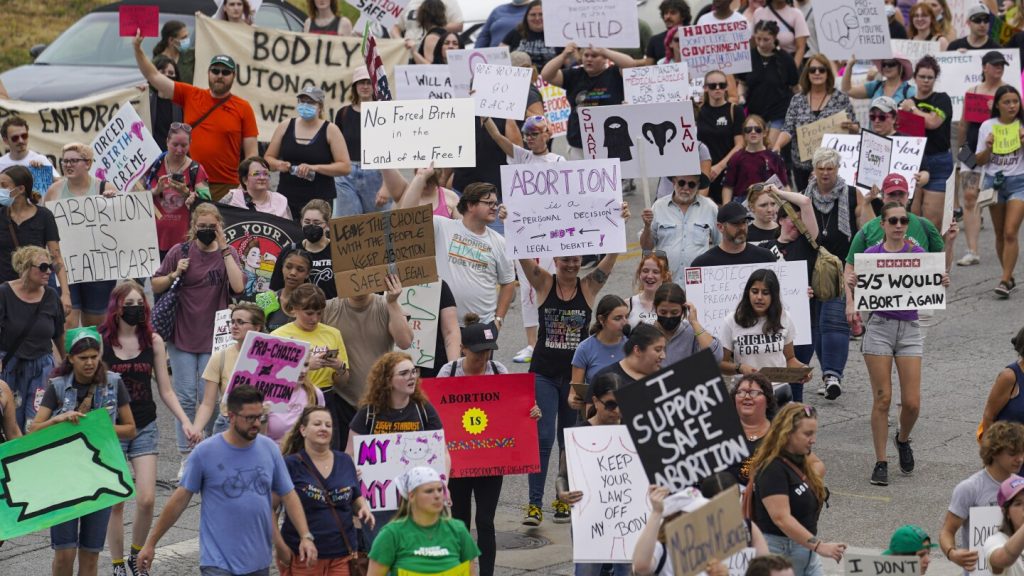Abortion providers in Indiana are challenging the state’s near-total ban on abortions, asking a judge to broaden access to the procedure. Currently, abortion is only allowed in rare circumstances at a hospital when the health or life of the woman is at risk. Planned Parenthood and other providers are seeking a preliminary injunction to expand medical exemptions and eliminate the hospital-only requirement. The Indiana Supreme Court previously upheld the ban but recognized the state constitution’s protection of a woman’s right to an abortion when her life or health is in jeopardy.
The plaintiffs argue that the ban’s exceptions for protecting health are too narrow, leading many doctors to avoid providing abortions even when a woman’s condition meets the criteria. They are pushing for the inclusion of conditions that may pose a threat to health later in pregnancy, after delivery, or exacerbate existing health issues. Additionally, they want women to be able to have abortions for psychological reasons, which the current statute prohibits by excluding the threat of self-harm or suicide as a serious health risk. The complaint highlights the impact of the ban on medical professionals, who face uncertainty and potential legal consequences for providing necessary abortions.
The limited availability of abortion services in Indiana, with only a few hospitals offering the procedure, creates barriers for women seeking care. This results in higher costs and delays for patients, particularly those who do not live near a hospital providing abortions. The state has refuted the providers’ claims, stating that Indiana does not violate any legal rights. The case is being heard in Monroe County, known for its liberal leanings, but was assigned to a Republican judge from a conservative county. Indiana was the first state to enact stricter abortion restrictions following the Supreme Court’s decision to overturn Roe v. Wade, leading to a significant decrease in abortion rates.
Since the implementation of the ban, the number of reported abortions in Indiana has significantly declined, indicating the impact of the restrictions. The law allows exceptions for cases of rape, incest, and lethal fetal anomalies in specific circumstances. An additional legal challenge is seeking a religious exemption to the abortion ban, with the state attorney general requesting the Indiana Supreme Court to review the case. The ongoing legal battles highlight the complex and contentious nature of abortion laws in Indiana, with providers, advocates, and lawmakers on opposing sides of the debate. The outcome of the trial and subsequent legal proceedings will have far-reaching implications for reproductive rights and access to abortion in the state.


